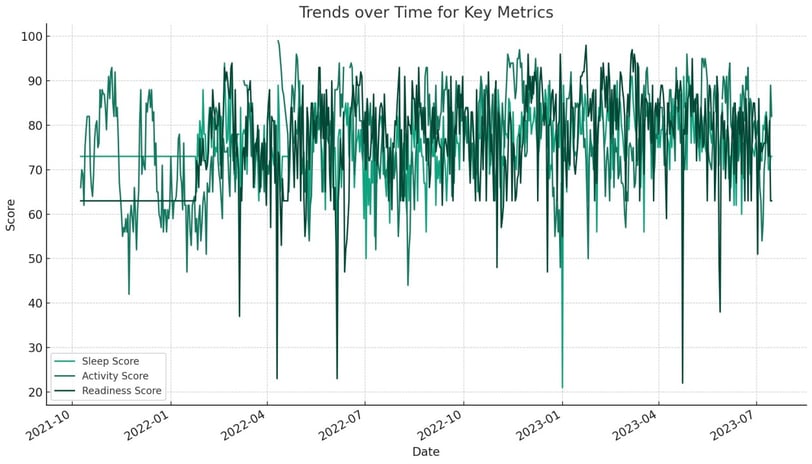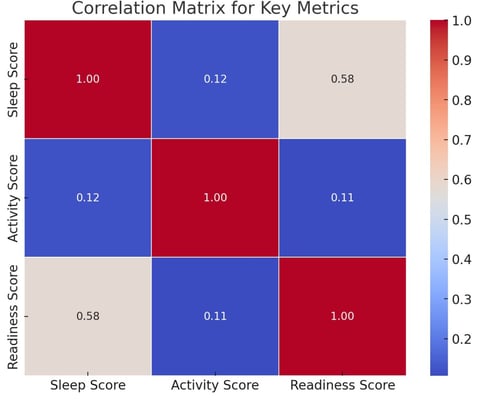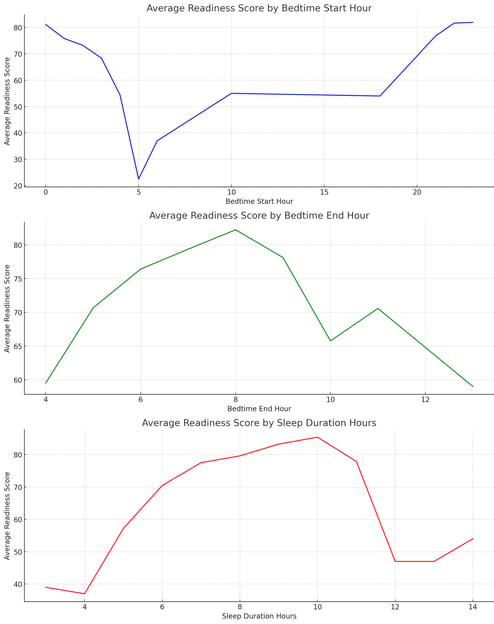Harnessing AI for Advanced Sleep Analysis and Readiness Optimization
Leveraging AI to gain insights from health tracking datasets.


Hello everyone,
Exciting news! I've been leveraging the power of artificial intelligence, specifically OpenAI's CodeInterpreter (ChatGPT), to dive into a health tracking dataset from my Oura ring with 54 columns and hundreds of rows.
In a task that would have taken a human hours or even days, ChatGPT completed it in a matter of minutes. The objective was to uncover the best sleep schedule for me personally that potentially leads to a higher readiness score.
The readiness score, a parameter defined by Oura, gauges your preparedness on a given day to tackle new challenges. Using a scale from 0 to 100, a score of 85 or above implies a high level of readiness, whereas scores below 70 may suggest the need for additional rest and recovery.


Key findings include:
Bedtime Start Hour: Starting bedtime slightly later seems to be associated with a higher readiness score.
Bedtime End Hour: Ending bedtime earlier might lead to a higher readiness score.
Sleep Duration: A longer sleep duration could be associated with a higher readiness score.


From the detailed analysis, it appears beneficial to start bedtime around midnight to 1 AM, end bedtime around 7 AM, and aim for a sleep duration of around 8 hours for potentially higher readiness scores.
Do keep in mind, these are statistical correlations and may not apply universally due to individual differences. Always follow healthy sleep habits that suit your needs and lifestyle.
